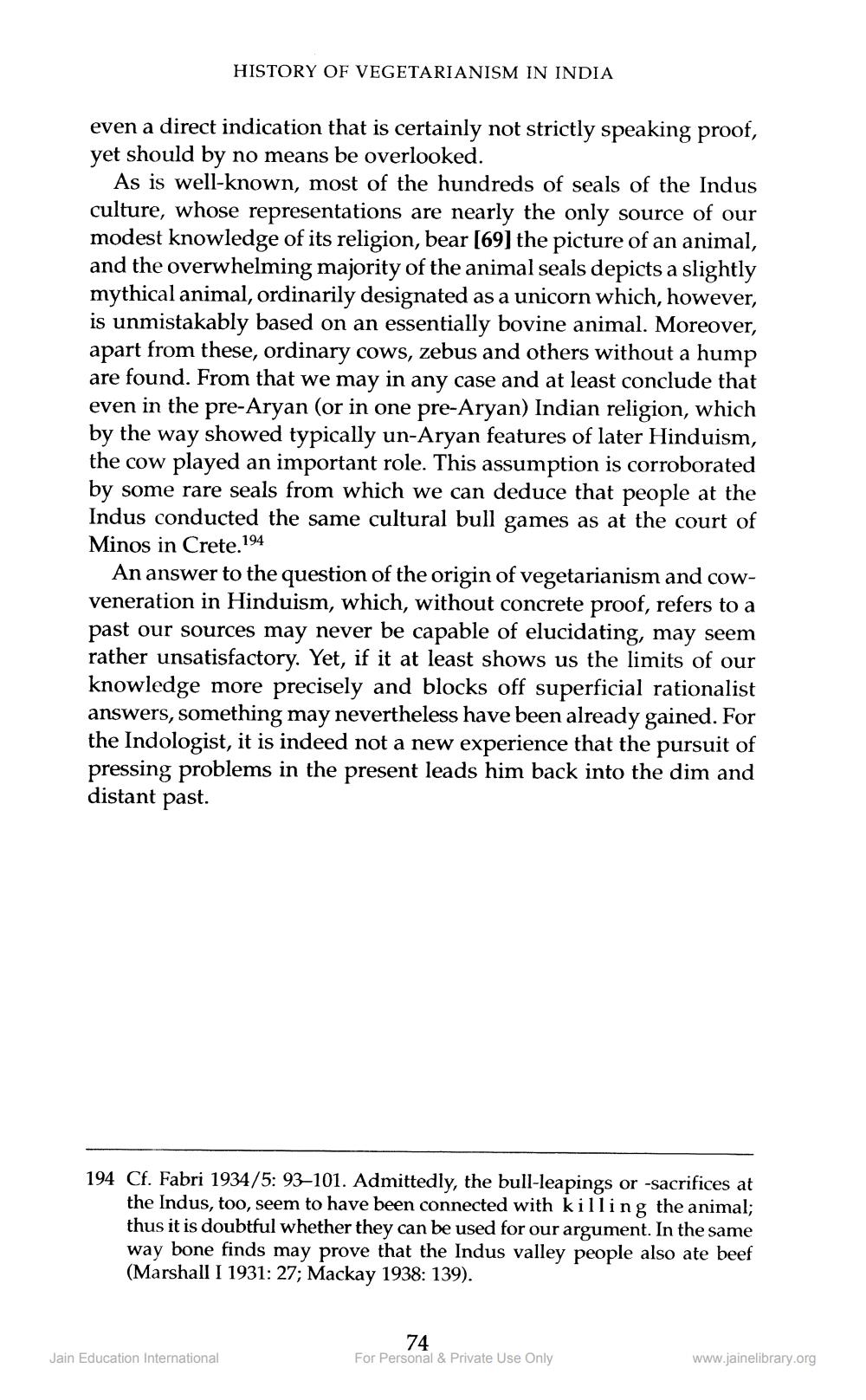________________
HISTORY OF VEGETARIANISM IN INDIA
even a direct indication that is certainly not strictly speaking proof, yet should by no means be overlooked.
As is well-known, most of the hundreds of seals of the Indus culture, whose representations are nearly the only source of our modest knowledge of its religion, bear [69] the picture of an animal, and the overwhelming majority of the animal seals depicts a slightly mythical animal, ordinarily designated as a unicorn which, however, is unmistakably based on an essentially bovine animal. Moreover, apart from these, ordinary cows, zebus and others without a hump are found. From that we may in any case and at least conclude that even in the pre-Aryan (or in one pre-Aryan) Indian religion, which by the way showed typically un-Aryan features of later Hinduism, the cow played an important role. This assumption is corroborated by some rare seals from which we can deduce that people at the Indus conducted the same cultural bull games as at the court of Minos in Crete. 194
An answer to the question of the origin of vegetarianism and cowveneration in Hinduism, which, without concrete proof, refers to a past our sources may never be capable of elucidating, may seem rather unsatisfactory. Yet, if it at least shows us the limits of our knowledge more precisely and blocks off superficial rationalist answers, something may nevertheless have been already gained. For the Indologist, it is indeed not a new experience that the pursuit of pressing problems in the present leads him back into the dim and distant past.
194 Cf. Fabri 1934/5: 93–101. Admittedly, the bull-leapings or -sacrifices at
the Indus, too, seem to have been connected with killing the animal; thus it is doubtful whether they can be used for our argument. In the same way bone finds may prove that the Indus valley people also ate beef (Marshall I 1931: 27; Mackay 1938: 139).
74
Jain Education International
For Personal & Private Use Only
www.jainelibrary.org




